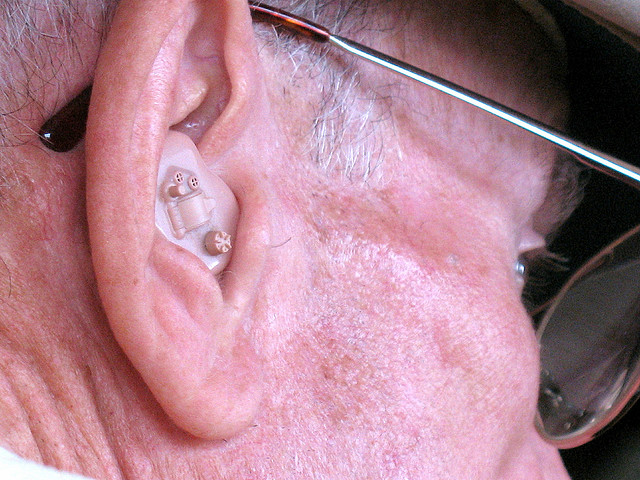According to the American Hearing Loss Association, about 20 percent of adults in the United States, (48 million) report some degree of hearing loss. Many things can cause hearing loss but one of the main factors is a noise-induced incidence. In fact, noise is one of the most common occupational hazards of today. It is important to protect our ears, and it may not just be the extremely loud noises that are causing the damage. Here is some information about everyday noise that can cause hearing loss, along with ways to protect your delicate hearing from damage.
How Ears Work
The ear is made up of three parts: outer ear, middle ear, and inner ear. The outer ear is the part that we can see, including the ear canal. This part is used to capture sound energy and funnel it into the middle ear. Next stop for the sound energy is the middle ear. This is where the sound waves are mechanically transformed and where signals are sent deeper into the inner ear. The final stop for the sound waves, once they are transformed, is the inner ear where the sensory cells ( also called hair cells) are located. The sensory cells transmit the signal to the auditory nerve and the brain.
When there is exposure to a sudden burst of loud noise, or even a steady stream of fairly loud noise, the ear can become damaged, resulting in hearing loss. This is due to damage of those tiny hair cells in an organ called the cochlea.
Please take a few moments to view this wonderful animation of how hearing works:
What Can Cause Ear Damage?
Noise-inducing hearing loss can be caused by a one-time exposure to a very loud noise, or long term exposure to loud noises over an extended period of time. Sound is measured in decibels, and what might seem like a small noise can actually cause a large amount of damage in your ears. For reference, below is a list of everyday noises and their decibel levels:
| Sound | Decibels (db) |
| Very faint, rustling leaves | 5 |
| Whisper | 20 |
| Rainfall | 50 |
| Typical speech | 60 |
| Washing machine | 75 |
| Busy city traffic | 85 |
| Hair dryer | 90 |
| Leaf blower, rock concert, chainsaw | 110 |
| Ambulance, jack hammer | 120 |
| Jet plane from 100 feet | 130 |
| Fireworks, gunshot | 140 |
| 12-gauge shotgun | 165 |
How Loud is Too Loud?
Long or repeated exposure to sounds that are 85 decibels or more can cause hearing loss. Motorcycles, firecrackers, and small firearms all emit sounds from 120 to 150 decibels.
The American Medical Association states that many children and adults are losing some of their hearing simply by listening to music with ear buds. For example, listening to music with earphones on an iPhone at a standard volume level of 5 for 15 minutes a day is enough to cause permanent hearing loss.
Think about the noise level at movies, concerts, and many contemporary praise worship services at church. The volumes at these events are often at damage-inducing levels.
There are practical ways to help you determine if the sound you are exposed to is too loud. If you have ringing in your ears, or a dull or flat sound after leaving a noisy environment, you were very likely exposed to damage-inducing noise levels.
Another way to evaluate your sound environment is to remember this: if you have to raise your voice in order to be heard by a person standing 2-3 feet away from you, the noise environment is hazardous.
Preventing Hearing Loss
Noise-induced hearing loss is largely preventable. If you understand the risks associated and hazards of noises, you can protect yourself and your family from potential damage to your ears.
These X-Series earmuffs by 3M provide the perfect combination of design, comfort, and protection from work-related noises. With a Noise Reduction Rating (NRR) of 31 dB, these earmuffs will protect your hearing from any type of loud noises due to heavy machinery, manufacturing, metal processing, automotive, airports, mining, or more.
For convenient, discreet, effective, and easy-to-use hearing protection, my family and I use Hearos.
To find out how much noise you are subjecting your ears to in various settings, I recommend a decibel meter like the highly rated Mini Digital Sound Level Meter.
—
Photo credit:









I love what you guys are usually up too. This kind of clever work and
exposure! Keep up the superb works guys I’ve added you guys to my own blogroll.
Hello,
Thank you for the kind words!
Dr. Maxwell